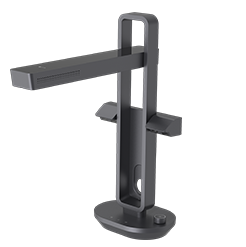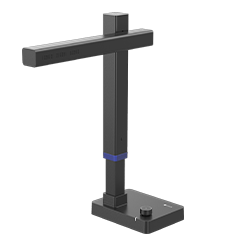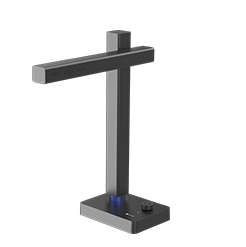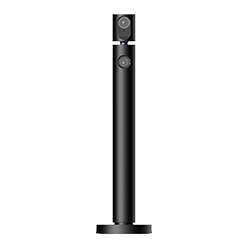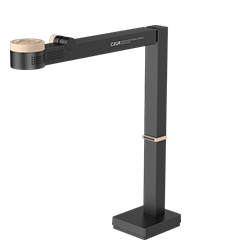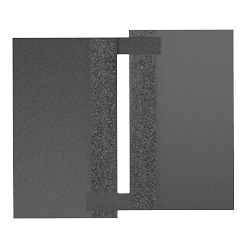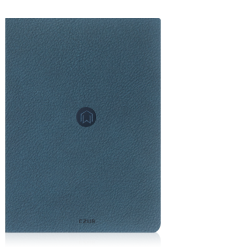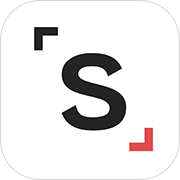Rapid scanning device may cause upheaval -October 26, 2015 12:15 am • KEITH DARNAY Bismarck Tribune
Modern technology is disruptive. That is, when a new technology is deployed, it often grows at the expense of an older technology or industry. The old is disrupted for the new.
Internet media has disrupted the old print, television and radio media. The development of the mp3 audio file format set the music industry reeling. It put into the hands of everyone the ability to easily copy and share music files at little to no cost.
The creation of the mp4 video file format set the motion picture industry reeling. It put into the hands of everyone the ability to easily copy and share video files at little to no cost.
And now, we're poised on the edge of another disruptive revolution.
A community-funded startup company on IndieGoGo.com has developed a scanner that promises to set the publishing industry reeling (http://bit.ly/1GwdUlU).
The Czur (pronunced "Caesar") is a smart technology scanner that makes converting books, magazines, photos, receipts and any other documents into digital files as easy as clicking a button.
At a scan speed of less than a second per page, whole books can be digitized in a matter of minutes.
Now, similar scanners have been around for years and have been used for projects such Google Books (http://books.google.com) and The Open Content Alliance (OCA) (http://www.openlibrary.org).
However, those high-end devices can easily cost thousands of dollars — not exactly mass market.
And there are do-it-yourself project book scanners you can build for several hundred dollars. But, again, these are still far from mass market products.
A Czur, however, can be purchased for less than $200 in its funding stage (under $380 when it is sold in a retail environment).
The low price point makes the Czur affordable to the average person. And it comes with an Optical Character Recognition program and software that corrects for the curves of bound pages, distortion, fingerprints and page-to-text contrast.
The "heavy lifting," in other words, is automated, producing quality digital copies of the originals.
Bottom line: An inexpensive, mass market, easy to use, fast document scanner — which is where the disruption comes in. The creators of Czur say it is a device that can help anyone quickly create a digital home library and reference shelf.
Ostensibly, this means you can digitize all the documents that are important to you and your family and safely store them somewhere as a backup in case the original files are destroyed. It means photos, documents and objects can be digitized for geneaology projects, preserving family history for future generations. It means you can digitize your personal book collection for reading on desktop computers and mobile devices.
In short, Czur will do for documents what mp3s have done for music and mp4s have done for video. And therein lies the potential trouble for the publishing industry.
The Czur is just a machine, a device that is inherently neither good nor bad. It's how people use the device that becomes the issue.
College textbooks are expensive. Producing unauthorized digital copies of textbooks quickly and easily could create chaos in that market. Sharing illegal copies of popular fiction and nonfiction books could depress physical book sales.
Magazines could be digitized and illegally distributed minutes after they hit the newsstands, killing sales of the physical product.
When the mp3 format was developed, most people used it as a way to legally copy music they owned for use on their various playback devices. But others used it as a way to illegally copy and distribute music they didn't own.
The same can happen with the Czur scanner — or any other rapid scanning device that appears on the market.
I have no doubt the developers of this technology have nothing but good intentions. They see their device as a way to empower everyone with something that allows them to digitize personal documents or commercial publications they have purchased and own. But you can almost guarantee there will be those few who will take advantage of the scanner to illegally copy and distribute material that doesn't belong to them.
The Czur is a remarkable piece of technology — which is why the publishing industry should take note.

